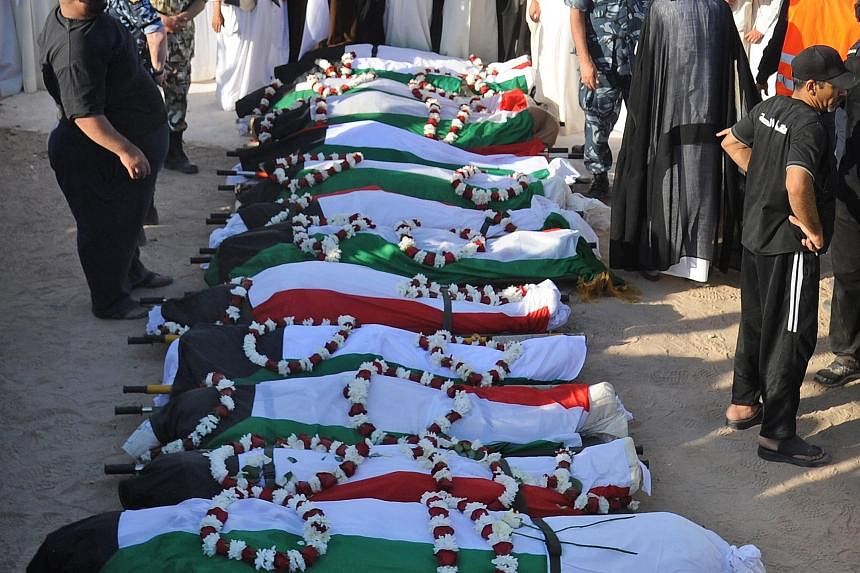DUBAI - Bahrain will consider placing surveillance cameras at places of worship and the Kuwaiti government will discuss additional security laws to prevent a repeat of last Friday's fatal attack on a Shi'ite mosque in the emirate.
The Kuwaiti authorities said on Sunday that the suicide bomber who killed 26 worshippers was Fahad Suleiman Abdulmohsen al-Gabbaa, a Saudi national born in 1992. They said he flew into Kuwait's airport at dawn last Friday, only hours before he detonated an explosives-laden vest at Kuwait City's Imam al-Sadeq mosque.
At least three suspects have been arrested, including the man who drove him to the mosque and the owner of the house where the driver was staying. The house owner is well-known to security agencies, a Kuwaiti official said.
"Initial investigations showed that the owner of the house is a supporter of the deviant ideology," the interior ministry said, employing a term often used for hardline Islamist militants.
The authorities also believe that the explosives used in the attack came from abroad, the official said.
Kuwait's worst bombing in a decade has raised concern that sectarian attacks may spread elsewhere in the oil-rich Gulf Cooperation Council, as conflicts in Iraq and Syria deepen the divide between Sunnis and Shi'ites. Supporters of the militant Islamic State in Iraq and Syria (ISIS) group in Saudi Arabia have killed scores in attacks on Shi'ite religious targets this year.
"What is happening in Iraq and Syria has an impact on all the Gulf states. This has led to polarisation among certain groups," said Mr John Jenkins, executive director of the International Institute for Strategic Studies-Middle East.
"The problem now is the wider regional context."
The Al-Qaeda breakaway group claimed responsibility for last Friday's bombing in Kuwait. ISIS issued an audio clip purporting to be a statement by the bomber, in which he criticises Shi'ite Muslims, "especially in Kuwait", for what he terms insulting Islam.
BLOOMBERG, REUTERS

